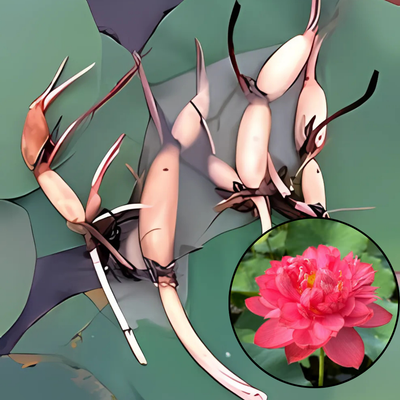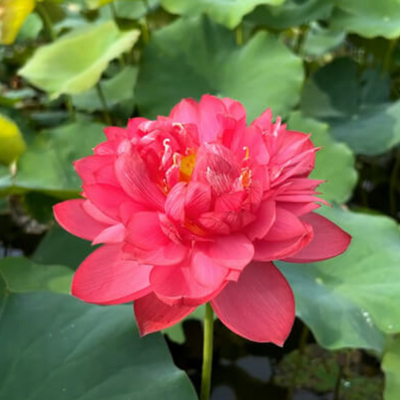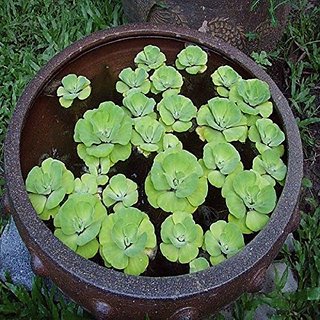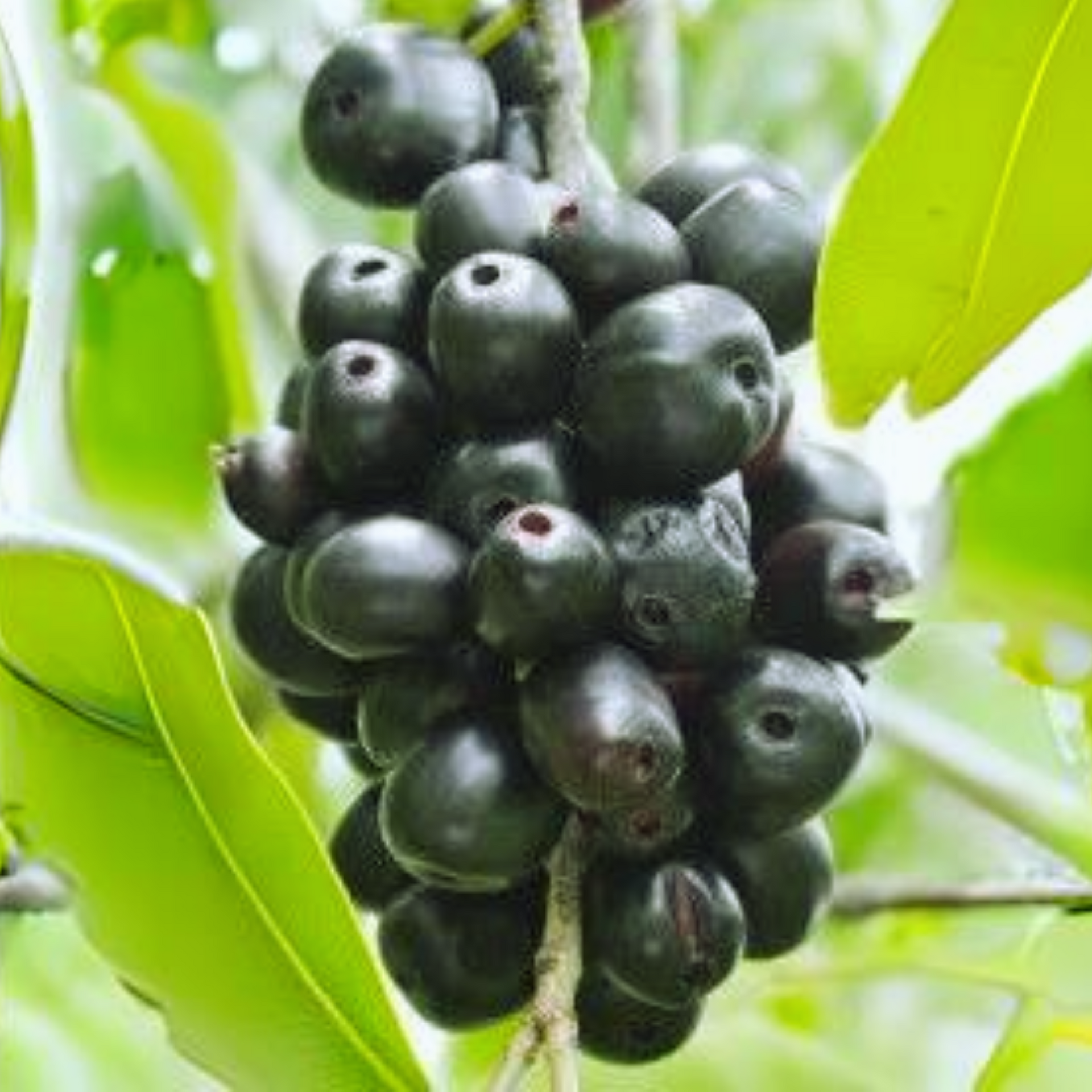
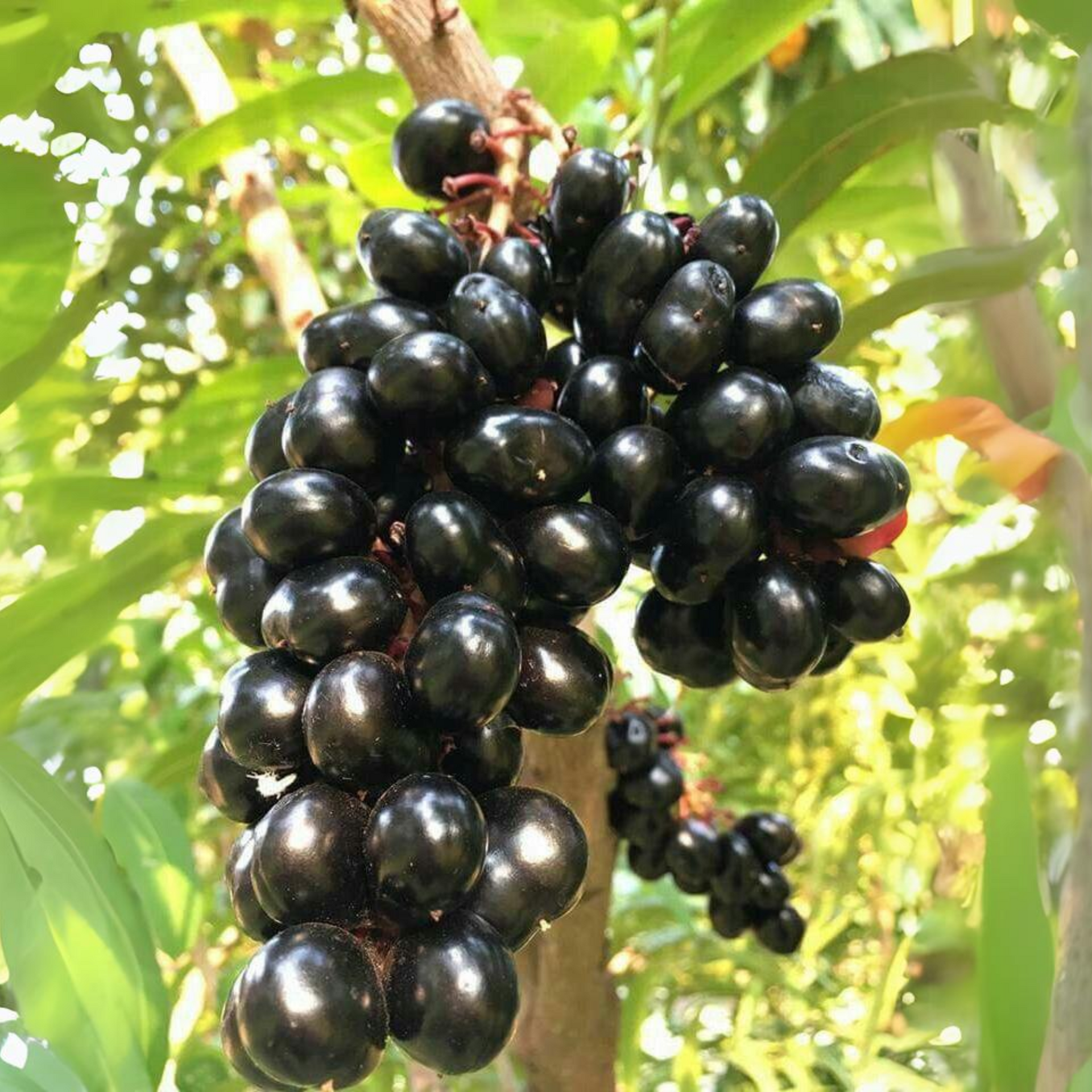
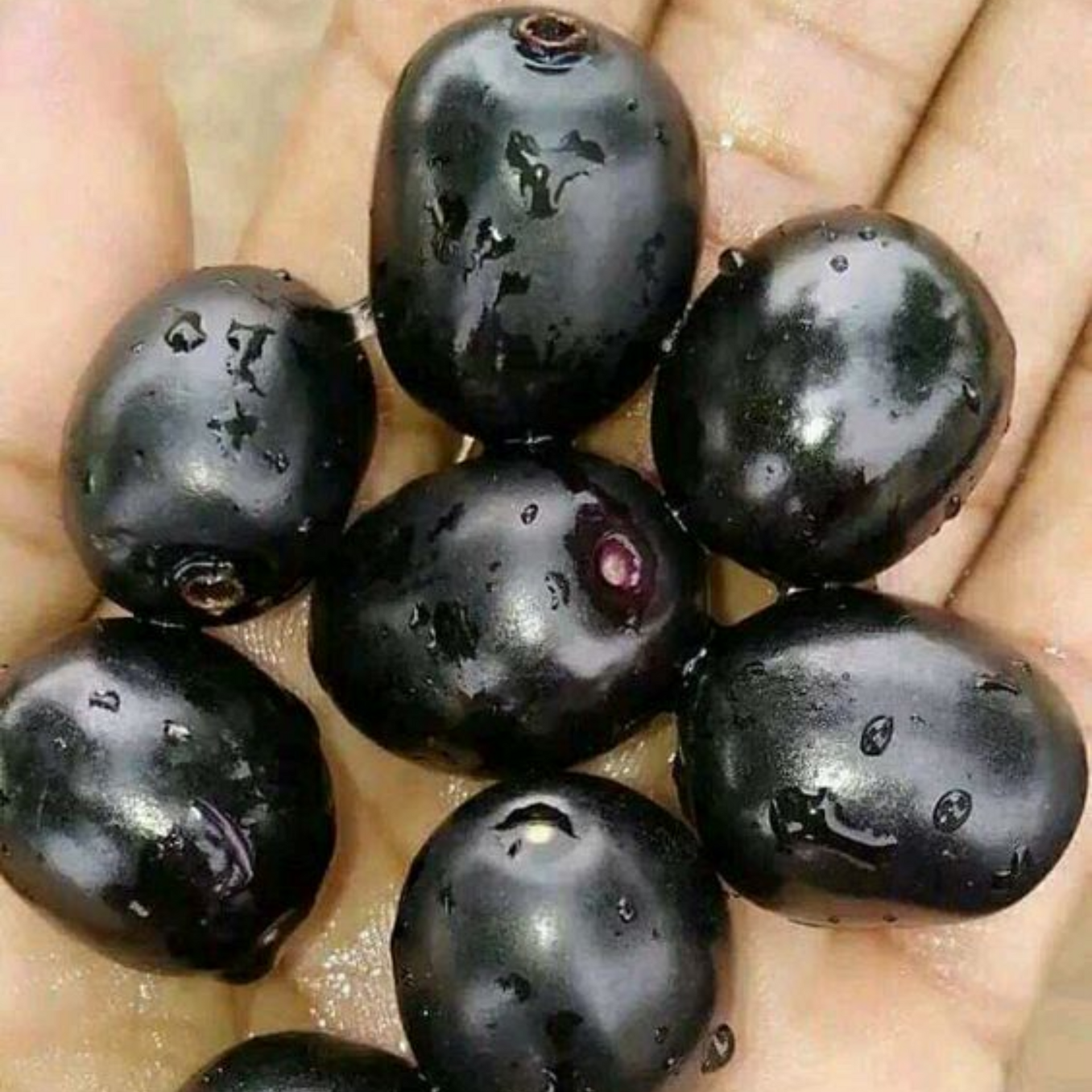
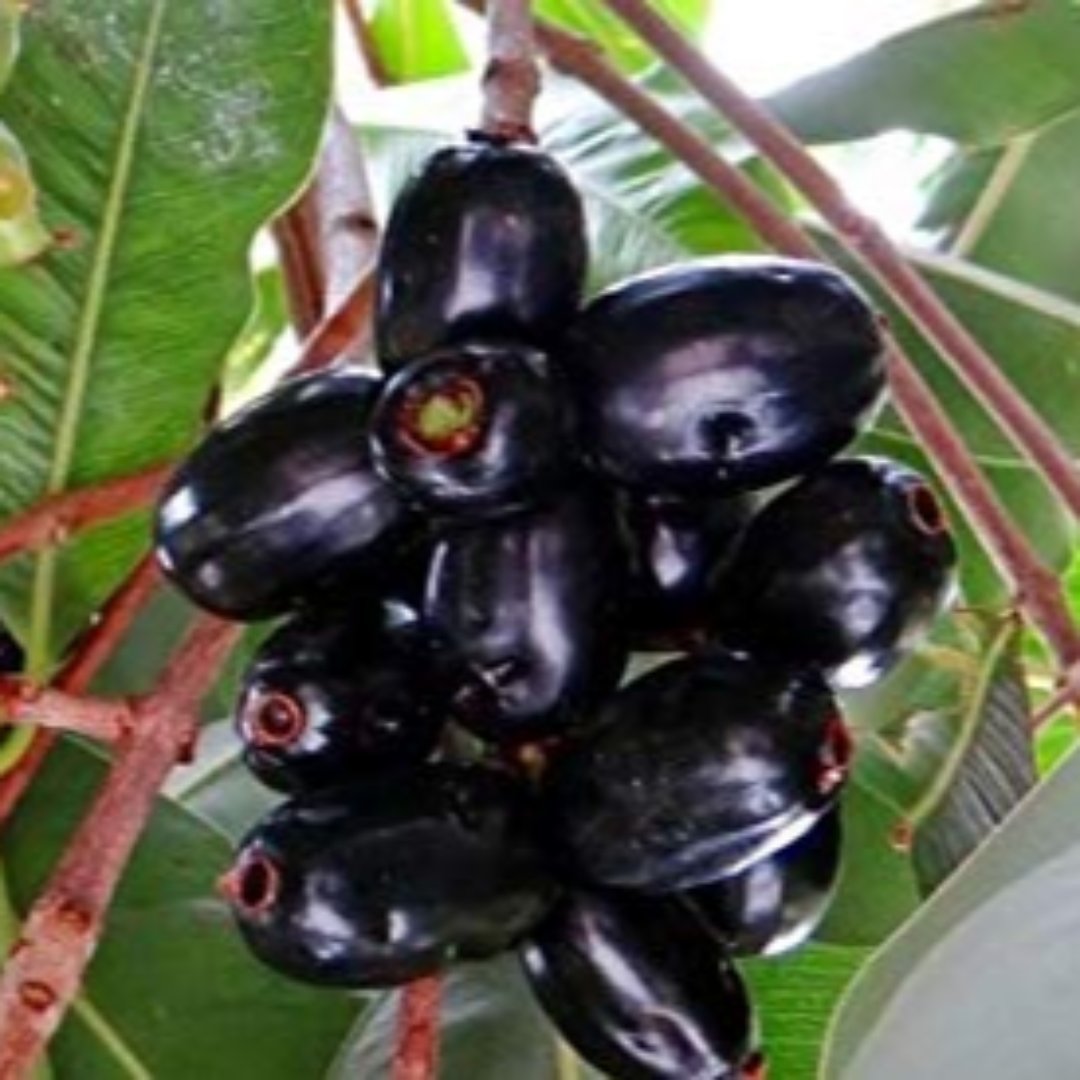
The Bountiful Beauty of Black Jamun
Plants
Black Jamun, scientifically known as Syzygium cumini, is a tree native to the Indian subcontinent and adjoining regions of Southeast Asia. This remarkable plant, also referred to as Java Plum, Jambul, or Indian Blackberry, is a jewel in the world of botany, celebrated not only for its delicious fruit but also for its significant cultural and medicinal importance.
About Black Jamun Plant
- Black Jamun is a medium to large-sized tree that can reach heights of up to 30 meters.
- It's characterized by its dense foliage, which provides ample shade during scorching summers.
- The tree's leaves are simple, opposite, and oblong, making it an attractive addition to gardens and landscapes.
The Fruit: A Culinary and Medicinal Delight
The real allure of the Black Jamun plant lies in its fruit. The ripe fruit is a deep, dark purple, almost black, and has a sweet yet tangy taste. It is not just a delight for your taste buds but also a treasure chest of health benefits.
Medicinal Properties
Blood Sugar Control:
Black Jamun is renowned for its potential to manage diabetes. It contains compounds that can aid in blood sugar regulation.
Rich in Antioxidants:
The fruit is packed with antioxidants, which can help fight oxidative stress and protect your cells from damage.
Digestive Health:
Jamun fruit and its seeds are used in traditional medicine to treat digestive disorders.
Boosts Immunity:
It's a good source of vitamin C, which can boost your immune system.
Skin and Hair Health:
The antioxidants in Black Jamun can help promote healthy skin and hair.
Anti-Inflammatory:
Black Jamun exhibits anti-inflammatory properties, which can be beneficial for various conditions.
Cultural Significance
- In India, the Black Jamun holds a special place in the hearts of the people.
- It is not only cherished for its delectable fruit but also plays a prominent role in traditional customs and rituals.
- During the summer months, the flowering and fruiting of the Jamun tree are celebrated with great enthusiasm.
- The fruit is also offered to deities in various religious ceremonies.
Growing Your Black Jamun Plant
If you're considering adding a Black Jamun tree to your garden,
here are some essential tips:
Climate:
Black Jamun thrives in tropical and subtropical climates. It prefers temperatures between 25-30°C but can withstand brief periods of cold weather.
Soil:
Well-draining soil with a slightly acidic pH level is ideal.
Sunlight:
These plants require full sunlight for healthy growth and fruiting.
Watering:
Regular watering is essential, especially during the flowering and fruiting season.
Pruning:
Shape your tree by pruning away dead or diseased branches.
Pests and Diseases:
Keep an eye out for common pests like fruit flies and aphids. Proper care and pesticide use can help protect your tree.
Cultivating the Exquisite Black Jamun Plant: A Gardener's Guide
The Black Jamun, scientifically known as Syzygium cumini and popularly called Java Plum, Jambul, or Jamun, is a delectable fruit tree native to the Indian subcontinent. Known for its deliciously sweet and tangy dark purple to black fruits, it's not just a treat for your taste buds but also a beautiful addition to your garden. If you're keen to embark on the journey of growing your very own Black Jamun tree, this comprehensive guide will walk you through the process.
Understanding the Black Jamun Plant
Before you start planting, it's essential to familiarize yourself with the Black Jamun tree's characteristics:
Appearance:
The Black Jamun tree is an evergreen, medium-sized tree that can grow up to 30 meters in height. It has a dense canopy and lustrous, dark green leaves.
Fruit:
The Black Jamun bears small, ovoid fruits that start green and turn purple to almost black when ripe. These fruits are known for their unique sweet-tangy flavor and are packed with health benefits.
Flowers:
The tree produces small, fragrant, white flowers, which are not only attractive but also serve as a source of nectar for pollinators.
Climate:
Black Jamun thrives in tropical and subtropical climates, making it suitable for regions with warm temperatures.
Selecting a Suitable Location
Picking the right spot for your Black Jamun tree is crucial for its growth and fruit production.
Here are some considerations:
Sunlight:
These trees love sunlight. Choose a location where the tree can receive at least 6-8 hours of direct sunlight daily.
Soil:
Black Jamun trees prefer well-draining soil that's rich in organic matter. They can tolerate a range of soil types but thrive in loamy soil.
Spacing:
Ensure that you plant your Black Jamun tree at least 25-30 feet away from other trees or structures to allow for its expansive growth.
Planting Your Black Jamun Tree
Once you've found the perfect spot, it's time to plant your Black Jamun tree:
Prepare the Soil:
Dig a hole about twice the size of the root ball and mix in well-rotted compost or organic matter to enhance the soil's fertility.
Plant the Tree Gently remove the tree from its vessel and place it in the hole. insure that the top of the root ball is position with the ground's face.
Watering:
Water the tree thoroughly after planting. Jamun trees like consistently moist soil, so water regularly, especially during the dry season.
Mulch:
Apply a layer of mulch around the base of the tree to retain soil moisture and keep the roots cool. This is especially true in hot weather.
Caring for Your Black Jamun Tree
Taking care of your Black Jamun tree is essential to ensure it thrives and bears fruit:
Fertilization:
Feed your tree with a balanced, slow- release toxin during the growing season( spring and summer).
Pruning:
Regularly prune your tree to maintain its shape and remove dead or diseased branches.
Pest Control:
Keep an eye out for common pests like fruit canvases and aphids. Use organic methods or appropriate insecticides to manage infestations.
Harvesting:
Black Jamun fruits are ready to be picked when they turn dark purple to black and have a slightly soft texture.
Health Benefits of Black Jamun
Apart from its delectable taste, Black Jamun has several health benefits. It's known for its anti-diabetic properties, as it helps regulate blood sugar levels. The fruit is also rich in antioxidants, vitamins, and minerals, making it a nutritious addition to your diet.
Growing a Black Jamun tree can be a rewarding experience. Not only will you have a beautiful tree in your garden, but you'll also get to enjoy its delicious and nutritious fruits. Remember, patience is key, as these trees take some time to mature and produce fruit. With proper care, you can savor the sweet rewards of your efforts and relish the natural beauty of the Black Jamun tree in your garden.
The Black Jamun plant is not just a source of delicious fruit but a symbol of cultural significance and a wellspring of health benefits. Whether you want to enjoy the sweetness of its berries, explore its medicinal properties, or simply bask in the shade of its lush foliage, the Black Jamun tree is a valuable addition to any garden or landscape. So, why not plant one and experience the joy it brings to your life?
Happy gardening!

